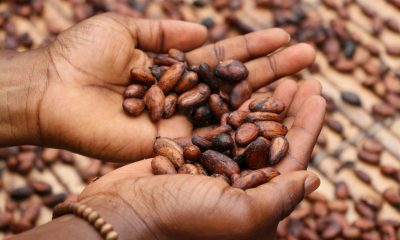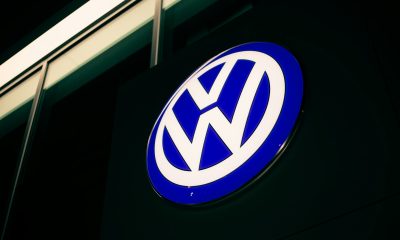Africa
Volkswagen starts pilot project in Rwanda
Volkswagen wants to set new standards in e-mobility in Africa and is already venturing out with its first projects in order to be part of it at an early stage. The company sees the country as the world’s last untapped market and with 1.2 billion people living in Africa, it opens up opportunities beyond national borders. Currently, the company expects to produce 162,000 vehicles there this year.
Africa’s free trade agreement spurs German investment plans. The emergence of the world’s largest internal market with 1.2 billion people opens up opportunities beyond national borders. Volkswagen is already venturing out with its first projects in order to be part of it at an early stage.

New standarts in e-mobility in Africa
Johannesburg (dpa) – With a pilot project, Volkswagen wants to set new standards in e-mobility in Africa. Thomas Schäfer, Managing Director of Volkswagen South Africa, announced that 50 e-golf cars will soon start driving in Rwanda’s capital Kigali.
The project will formally go on show in Kigali on 29 October. The infrastructure itself rests with Siemens. Initially, however, the electric golf cars themselves will not sell to private individuals, but will only serve Volkswagen’s own mobility service.
The opening of new production facilities in Ghana
Schäfer – who is also Chairman of the African Automobile Manufacturers Association (AAAM) – also announced the opening of new production facilities in Ghana and Kenya over the next few months. With initially modest quantities, they are to become a kind of door opener for the planned African domestic market, said Schäfer.
He sees Africa as the world’s last untapped market and is thus in agreement with industry expert Ferdinand Dudenhöffer. “Yes, it is a potential market. But the potential needs an economic basis in order to be developed,” he told the German Press Agency, referring to the weak economy.
Schäfer estimates the potential of the continent at up to five million new cars per year – if the conditions are right. And at present they are not doing so either from Dudenhöffer’s or Schäfer’s point of view.
The VW manager is therefore working on a “pan-African car pact” and is exploring pioneering markets with industrial partners. He has in mind a closely interlocked continental manufacturer market à la Airbus. He knows that the AAAM is behind him.
More than 200 VW vehicles assembled in Africa
Schäfer is about showing what can be done. In this context, he likes to refer to the Wolfsburgers’ first attempts at walking in China, when they initially produced quite modest quantities there with the Santana model, which was hardly in demand in Germany.
He therefore sees the 50 eGolf in Rwanda’s capital Kigali as just one start. According to him, a fleet of more than 200 VW vehicles assembled in the country.
Schäfer speaks of a steep learning curve that has existed in Rwanda so far. It is also about data: How does a mobility service react in an environment with high temperatures and regions without street names? Useful experiences that should also be used in Ghana.

126,463 vihicles produced in the South African port
The Volkswagen plant near the South African port of Port Elizabeth, where 126,463 vehicles produced in the previous year, regarded as the largest location on the continent to date. Schäfer expects to produce 162,000 vehicles there this year. The plant builds various Polo versions for export as well as for the domestic market.
South Africa regarded as a kind of test market for automobile manufacturers from all over the world, including BMW, Mercedes, Ford and Nissan, but also Chinese and Indian manufacturers. The VW brand now has a market share of 20 percent – the highest in the Group.
—
(Featured image by Julian Hochgesang via Unsplash)
First published in de.nachrichten.yahoo, a third-party contributor translated and adapted the article from the original. In case of discrepancy, the original will prevail.
Although we made reasonable efforts to provide accurate translations, some parts may be incorrect. Born2Invest assumes no responsibility for errors, omissions or ambiguities in the translations provided on this website. Any person or entity relying on translated content does so at their own risk. Born2Invest is not responsible for losses caused by such reliance on the accuracy or reliability of translated information. If you wish to report an error or inaccuracy in the translation, we encourage you to contact us.

-

 Fintech1 week ago
Fintech1 week agoRuvo Raises $4.6M to Power Crypto-Pix Remittances Between Brazil and the U.S.
-

 Biotech6 days ago
Biotech6 days agoEurope’s Biopharma at a Crossroads: Urgent Reforms Needed to Restore Global Competitiveness
-

 Crowdfunding2 weeks ago
Crowdfunding2 weeks agoAWOL Vision’s Aetherion Projectors Raise Millions on Kickstarter
-

 Africa1 day ago
Africa1 day agoFrance and Morocco Sign Agreements to Boost Business Mobility and Investment
























